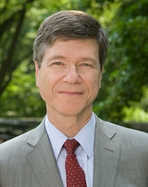European Russophobia and Europe’s Rejection of Peace: A Two-Century Failure
Europe has repeatedly rejected peace with Russia at moments when a negotiated settlement was available, and those rejections have proven profoundly self-defeating. Read more
 Jeffrey Sachs
Jeffrey Sachs
Recent news brings yet another example of hubris followed by crisis followed by tragedy. The hubris is our ongoing neglect of human-induced climate change, leading to climate disruptions around the world. One of the many climate crises currently under way is the mega-drought in São Paulo, Brazil. The recent tragedy is an epidemic of dengue fever in the city, as mosquitos breed in the makeshift water tanks that have bought in to maintain supply through the drought.
Welcome to ‘the age of sustainable development’. We are learning a hard truth: the world economy has crossed the “planetary boundaries” of environmental safety. We now face a momentous choice. Will we continue to follow our blind economic model at growing threat to humanity, or will we choose a new direction that finally combines economic progress with social justice and environmental safety?
São Paulo is just one of many such cascading disasters. My colleagues at the Earth Institute of Columbia University recently detailed how Syria’s disastrous war was triggered in part by a devastating drought that itself was a signal of long-term drying in the eastern Mediterranean. Others have used sophisticated climate models and a deep reading of past climate history to show that California’s extreme drought is a foreshadowing of mega-droughts ahead in the 21st century in the US southwest and mid-plains states, as a result of human-induced climate change.
But it happens that 2015 is a key year of decision for sustainable development. Twenty-three years after the Rio Earth Summit, the 193 UN member states have resolved to adopt sustainable development goals (SDGs) this September. Just before that they will meet in Addis Ababa, Ethiopia, to redirect global financial flows towards sustainable investments in health, education, and renewable energy, and away from dangerous fossil fuels. And in December, they have the final opportunity to conclude a climate change agreement that can keep global warming below the agreed upper limit of 2-degrees Celsius.
The article’s full-text is available on the website of The Guardian